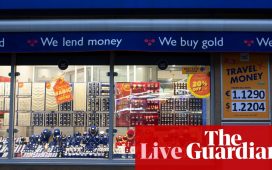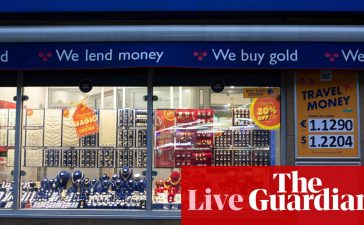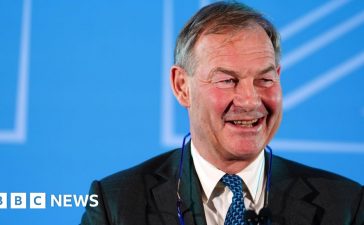Housebuilders rallied sharply on the London stock market after Labour’s landslide general election victory as investors bet that Keir Starmer’s pledge to bulldoze planning rules and build 1.5m new homes would benefit the sector.
After the party secured a majority widely expected in financial markets, the FTSE 100 index of blue-chip companies and the pound edged higher on Friday while government borrowing costs remained roughly unchanged.
The FTSE 100 later pared gains to finish the day down 0.5% at 8,203, while the more domestic-focused FTSE 250 closed up 0.9%.
City analysts said a clear Labour win could bring stability to British politics after years of turmoil under the Conservatives since the 2016 Brexit vote, while positioning Britain as a “safe haven” for global investors amid rising political instability in the US and France.
“A landslide victory provides the sort of clarity and stability that equity markets need in an increasingly volatile world,” said Ben Ritchie, the head of developed market equities at the fund manager abrdn. “If the new government get this right, businesses with significant exposure to the UK economy should be the likely winners.”
Housebuilders were the biggest gainers, with Persimmon, Vistry, Barratt and Taylor Wimpey among the top risers in the FTSE 100.
Shares in Crest Nicholson jumped as much as 11% after it reportedly rebuffed a bid from its rival Avant Homes, which is owned by the US hedge fund Elliott Advisors.
Avant made an all-share proposal to the board of Crest last month, Sky News reported, which was rejected. Elliott would have become the biggest shareholder in the combined group. Weeks earlier Crest had rejected a bid from Bellway, another London-listed housebuilder, that valued the business at £650m.
Analysts at the investment bank Jefferies said Labour’s win was “a major positive for UK housebuilders” as the party “appears more supportive, engaged and focused on delivery of homes”.
Starmer had made planning reform a centrepiece of his election campaign to “get Britain building again”, aiming to spur economic growth, create jobs and build 1.5m new homes over the next parliament.
The pound rose 0.4% against the dollar to $1.28, with sterling the strongest performing big currency against the dollar this year after rallying in the run-up to Thursday’s vote.
Currency markets had widely priced in a Labour landslide and Starmer’s key message that he would seek to restore stability, improve economic growth and take a fiscally responsible approach to government.
after newsletter promotion
After four prime ministers in five years, sterling has recovered from a record low of $1.03 in 2022, when Liz Truss’s mini-budget triggered a meltdown in financial markets that required the Bank of England to intervene to prevent pension funds from going bust.
Labour’s election victory comes against a backdrop of an improving economy. Inflation has returned to the government’s 2% target, after a prolonged period of soaring price rises and a peak inflation rate of 11.1% in October 2022. That was the highest level in 41 years.
The economy has recovered from a shallow recession at the end of 2023 and grew by 0.7% in the first quarter of the 2024, in the latest official data.
As inflation comes down, the Bank of England is expected to start cutting interest rates, possibly as soon as next month, in a move that will provide relief and hope for households facing sharply higher mortgage costs.
Kathleen Brooks, the research director at the broker XTB, said investors would now concentrate on what Labour does in the early days of power.
“The focus now will quickly shift to Sir Keir Starmer’s first 100 days in office, and how he lays out his economic plans to boost growth at the same time as improving public services.”







